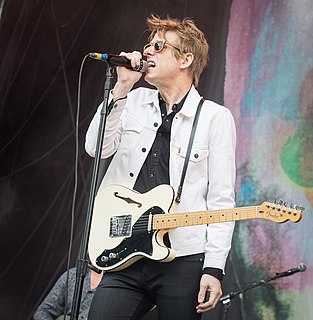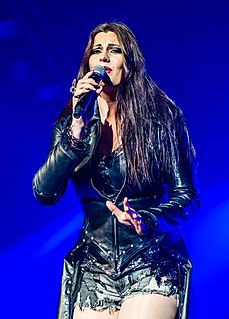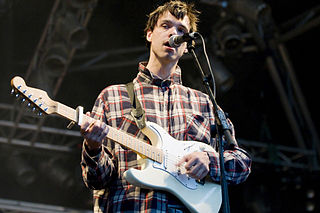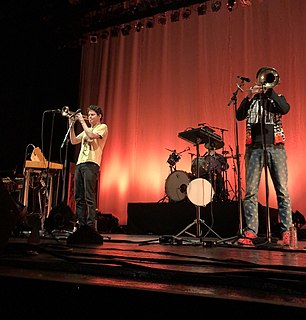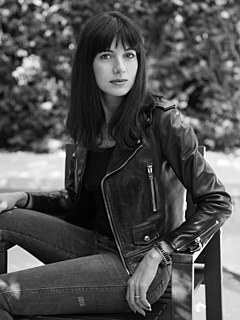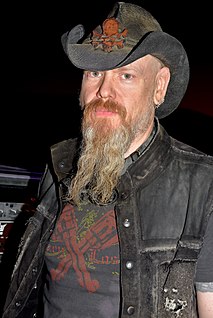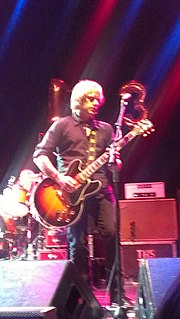A Quote by Britt Daniel
Usually I write the songs at home and then I bring them in to the band; when we play them as a band, that's kinda how we figure out the feel of how they're going to be presented on the record or live.
Related Quotes
All those experiences were a chance to learn more about music. Playing with the Valley band is like such a "live" band. I mean, really, in many ways Bright Eyes is really a studio project. We form bands to tour, but it really is - you know, we take the songs and we figure out how to decorate them and it's all in the studio, we build the songs that way. Whereas Mystic Valley Band was the exact opposite, where everybody knows what they are gonna be playing on the song and there's sort of a general stylistic approach, and then it's just plug in and play.
I do not want and will not take a royalty on any record I record. I think paying a royalty to a producer or engineer is ethically indefensible. The band write the songs. The band play the music. It's the band's fans who buy the records. The band is responsible for whether it's a great record or a horrible record. Royalties belong to the band. I would like to be paid like a plumber. I do the job and you pay me what it's worth.
I didn't realize how different our band's senses of melody actually were. I would write a part that just made perfect sense to me, but for them, it was mind-boggling. Likewise, they could play stuff with relative ease that I never could have. If there was something lost in translation melodically, it wouldn't work at all - we'd just be 17 people in a giant room staring awkwardly at each other. When that happened, I'd go home, figure out what was wrong, fix it, and then return to smooth sailing.
My first CD started as a studio project and I record everything with one other guy, so I didn't have a band. That's kind of how I like to do it, though. I like to create it with one other person, this guy, Tommy English, who produces everything. And then I go out on the road with a band who interprets it live.
There's a lot of discussion about whether you should be a good live band or a good studio band. I think you can use the studio to make a great "studio record" and not necessarily have to reproduce exactly that on stage, but still be a great "live band." Having said that, if what you're going for is just the raw capture of your live sound, then that's cool, too - go for it! I enjoy working in the studio, though, and while I try to get near to an approximation of what's going on onstage, it's not my first priority usually.
I think it's stripped down as far as electronics go, but we just wanted to write a record that we felt better represented how we sound live with more of a rock feel, which is the direction we've been heading. It's just an evolution of the band throughout the years. We worked on this record longer than any other record, so I don't know if "stripped down" is how I would put it; I think it is a little bit more raw sounding.
We don't think about how the songs are going to translate so much during the writing process. Once the song is recorded, and once we're mixing, that's when it occurs to me. Then you start rehearsing to play shows. I never concern myself about how we're going to pull it off live, because I know we'll figure out a way to do it.
